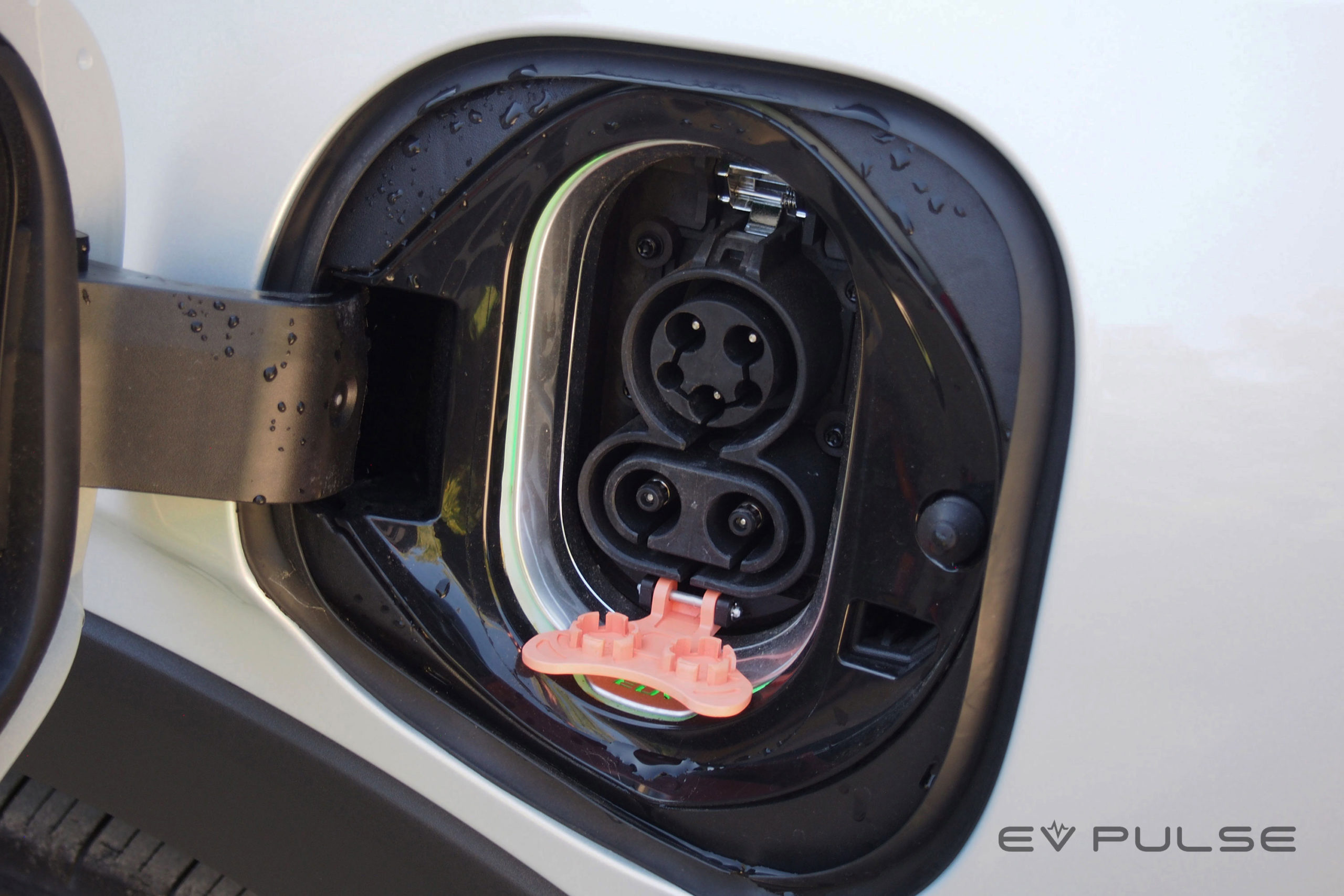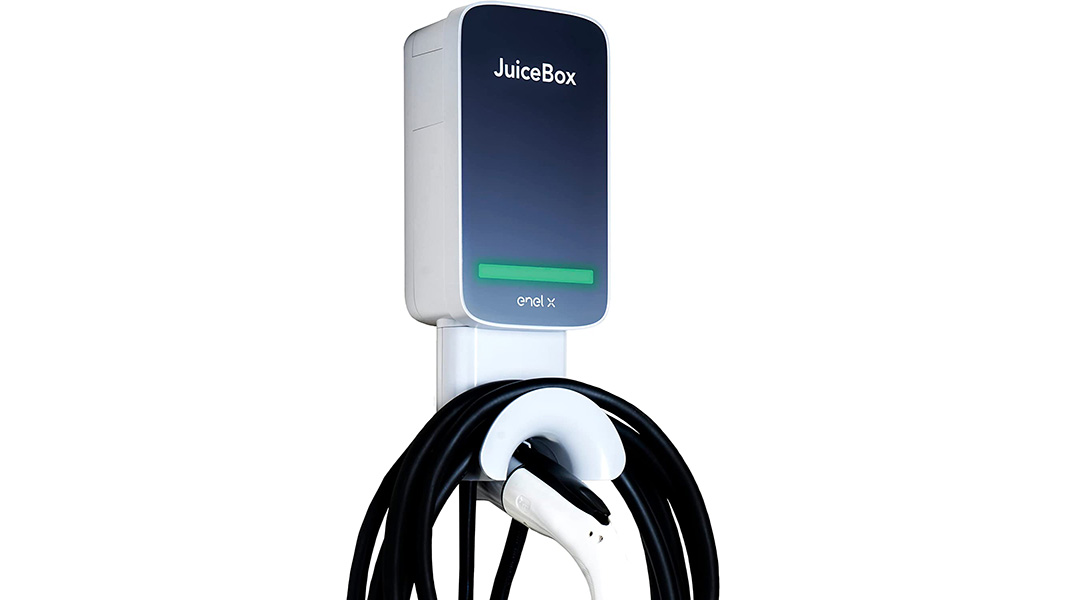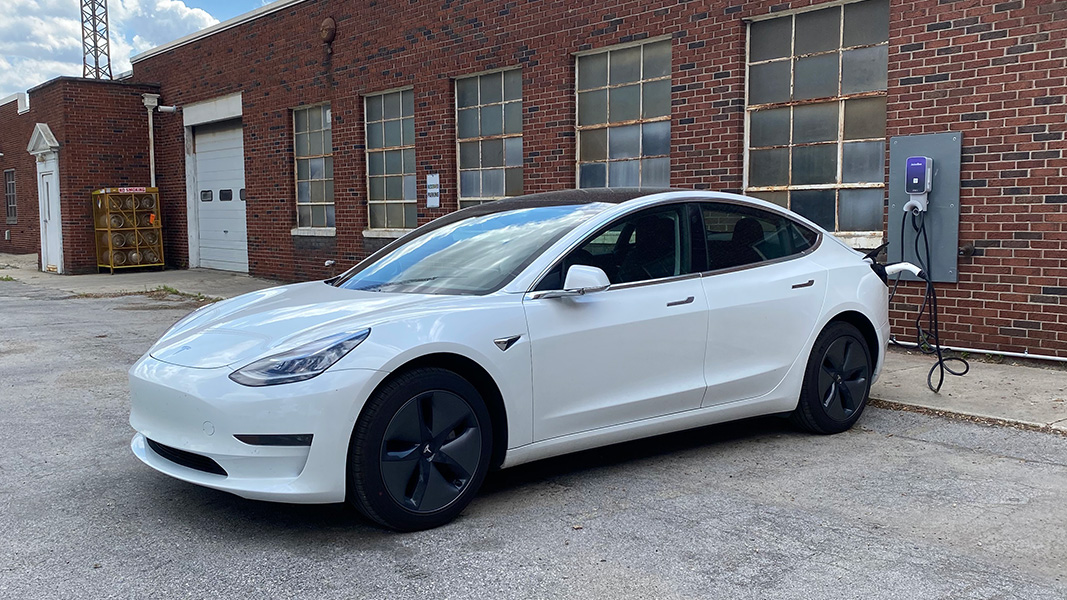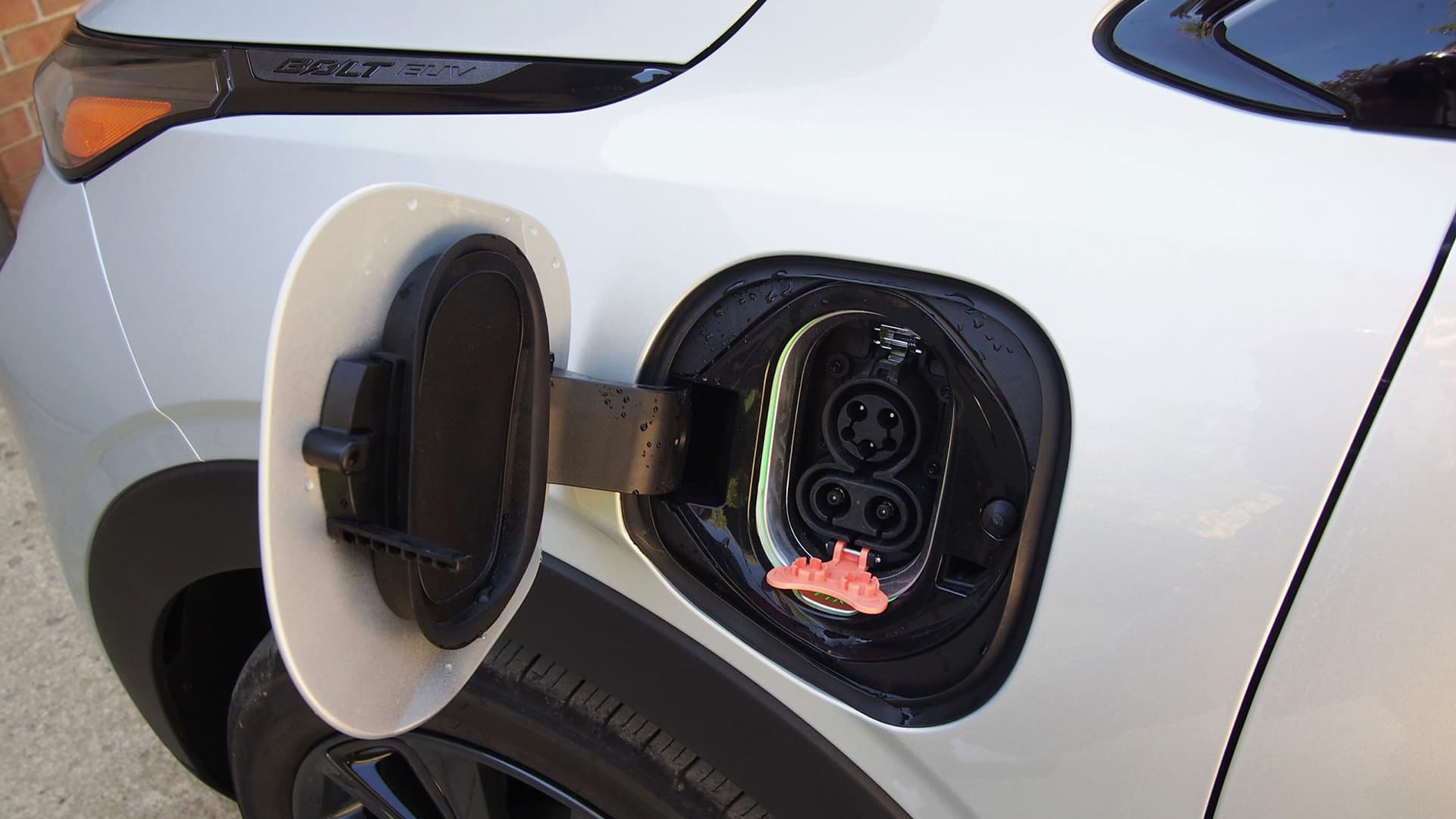In our review of the 2023 Chevy Bolt EUV Premier, we named it the best value in the EV world. The 2023 Chevy Bolt and Bolt EUV are currently the most affordable BEVs in the U.S., and we wouldn’t be surprised if we saw more and more them hitting the roads in the coming years. In fact, with the overall growing popularity of EVs around the world, we recommend Level 2 home charging if possible. It’s expected that sales of EVs will outpace infrastructure growth (depending on where you live), which means longer wait times for public charging.
The standard Chevrolet Bolt EV has undergone a few minor battery changes over the years. The original 2017 to 2020 model years were equipped with a 60-kWh battery pack, while the 2020 to 2021 models had a 66-kWh battery pack. For the 2022 and up model years, both the Bolt and Bolt EUV are equipped with a 65-kWh battery pack. What does that mean for Level 2 home charging? Well, that also depends on the model year.
From 2017 to 2021, the Chevy Bolt came equipped with a 7.2-kW onboard charger. An optional 11.5-kW charger was added to the Bolt’s lineup in 2022 but is standard on the Bolt EUV. The 2023 models all come standard with the 11.5-kW onboard charger.
The latest Bolt EV offers up to 259 miles of range on a full charge, while the Bolt EUV is rated at up to 247 miles on a full charge.
Level 1 charging
Level 1 charging times will vary depending on which model year Chevy Bolt you have since there are different battery pack sizes. Generally, you can expect to get about 4 miles of range per hour with Level 1 charging. This is with the included charger with the Chevy Bolt. The Chevy Bolt EUV does come with the Dual Level Charge Cord, which gives you the versatility of also using a 240-volt outlet for Level 2 charging. Eventually, the standard Bolt will also have the Dual Level Charge Cord. As a reminder, Level 1 charging can be done with your standard household 120-volt electrical outlet.
Chevrolet says, if your average commute is around 40 miles or less each day, then Level 1 charging may be sufficient for you.
Level 2 charging
With Level 2 charging at home with the Dual Level Charge Cord, you can get up to 26 miles of range per hour of charge. Opting for a Level 2 home charger that takes full advantage of the 11.5-kW onboard charger (if your Bolt has one) will net you up to 39 miles per hour on the Bolt EV or 37 miles per hour on the Bolt EUV. That’s using a 48-amp charging unit. If you have an older Bolt model with the 7.2-kW onboard charger, then you can just purchase a 32-amp charger, since your vehicle won’t be able to take advantage of faster Level 2 charging speeds. Expect to get around 28 miles of range per hour if your Bolt has a 7.2-kW onboard charger.
Level 2 charge times will vary depending on the charger you have, if your Bolt has the 11.5-kW onboard charger. Using a 32-amp home charger will take about 8.5 hours to fully charge the 65-kWh battery, while a 40-amp charger drops that time to about 7.5 to 8 hours. With a 48-amp charger, it’ll take about 7 hours.
With the 7.2-kW onboard charger, expect a full charge to take around 9 hours. Again, you don’t need anything more than a 32-amp charger if you have an older Bolt model with the 7.2-kW onboard charger. If you plan on eventually purchasing another EV however, you may want to future-proof yourself by purchasing a 40- or 48-amp charger.
Fast charging

DC fast charging is available on the Chevy Bolt and Bolt EUV at public stations. According to Chevrolet, DC fast charging will add up to 100 miles for the Bolt EV and 95 miles for the Bolt EUV in 30 minutes. Both Bolt models use the SAE Combine Charging Connector (CCS) for Level 3 DC fast charging and has a maximum fast charge rate of 55 kW.
DC fast charging on the Chevrolet Bolt and Bolt EUV will be noticeably slower than say, a Hyundai Ioniq 5. It’s something to keep in mind if you’re still car shopping, as there are other EVs on the market with much faster charging capabilities, if that’s your primary concern.
Recommended Level 2 home EV charger

If you’ve been following along in this guide, the recommended home EV charger for your Bolt largely depends on the model year you have. If your vehicle has the 7.2-kW onboard charger, we recommend the JuiceBox 32 EVSE. Newer Bolt and Bolt EUV owners who have the 11.5-kW onboard charger will want to purchase a JuiceBox 48 for the fastest charging speeds.
To install a Level 2 charger at home, you will need a 240-volt outlet and a dedicated circuit if you choose a plug-in charger. The 48-amp JuiceBox charger is only available as a hardwired model, so it’s recommended to contact an electrician for installation.

We recommend the Enel X JuiceBox home EV charger because it’s what we actually use at our office — just the commercial versions. The chargers come with WiFi connectivity, allowing you to use an app to control and monitor charging remotely. You can also choose to receive notifications when your car is fully charged, or set reminders to plug in your vehicle. JuiceBox chargers are also compatible with Amazon Echo and Alexa, allowing you to use voice commands.

